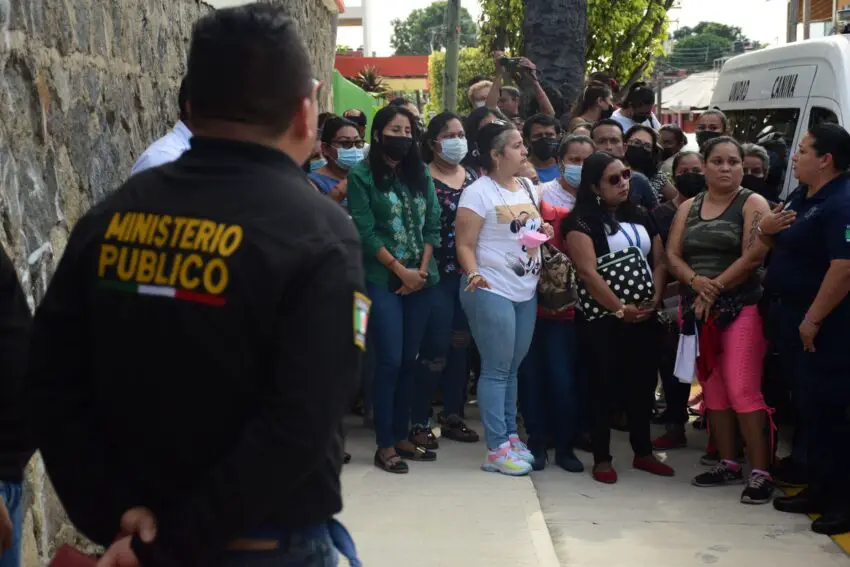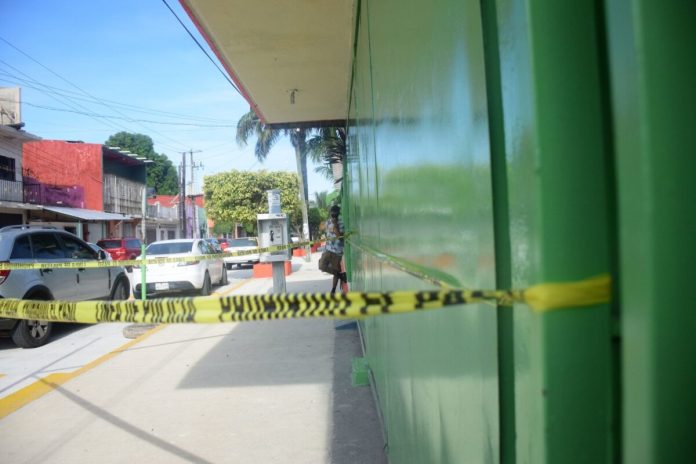For the third time in less than a week, a mass poisoning case affecting students has been reported in the southern state of Chiapas.
On Tuesday, October 11, 14 students who attend the Federal No. 1 Constitución secondary school in Tapachula became sick and were taken to a Mexican Social Security Institute (IMSS) hospital, the newspaper El Financiero reported.
Students said that some of their classmates felt dizzy and vomited before they were hospitalized.
IMSS said the 14 students had symptoms of “probable poisoning,” but what substance they had ingested was unclear. They were reported in stable condition.

In a separate incident on Friday, October 7, a large number of students mysteriously fell ill in the municipality of Bochil, only a day after a dozen students in Tapachula became sick due to suspected poisoning.
The events were all preceded by an incident in late September, where some 30 students fell ill in Tapachula.
The October 7 incident in Bochil, located about 80 kilometers northeast of state capital Tuxtla Gutiérrez, saw over 100 students in their early teens poisoned by an unidentified substance. Fifty-seven of the students were initially hospitalized, according to IMSS, but all but two – one of whom is reportedly in serious condition – were later released.
However, at least 20 Bochil students were readmitted to hospital on October 11 because they were suffering anxiety, nausea, vomiting and hallucinations, according to the newspaper El Heraldo de Chiapas, which spoke with family members.
Reports said that the Bochil students had ingested cocaine, but the Chiapas Attorney General’s Office (FGE) said Monday that 35 toxicology tests had been conducted by state authorities and the results were all negative for that drug as well as opioids, cannabis and amphetamines.
However, the state Attorney General’s Office noted in a statement that three adolescents had tested positive for cocaine in tests conducted by private laboratories. In a press conference on Thursday, Chiapas Attorney General Olaf López Hernández announced that due to this discrepancy, his office had asked the federal attorney general’s office to provide additional experts to evaluate the case.
The FGE said it had received 29 complaints from parents of students who study at Bochil’s Juana de Asbaja secondary school and that five students reported drinking water after recess that tasted bitter. They subsequently began to feel ill.
The FGE said that it collected evidence from the school, among which were 33 plastic bottles of varying sizes and nylon bags.
José Eduardo Morales, a prosecutor in Chiapas who focuses on cases involving adolescents, said in a radio interview Tuesday that a blue substance was found in the nylon bags. That substance, which is being analyzed, was presumably mixed with water the students drank.
Morales said that a total of 110 students were in fact taken to hospital and another 20 or so were treated by private practice doctors.
He said the case remains under investigation and that authorities were waiting to speak with more affected students.
With reports from El Financiero, Sin Embargo and El Heraldo de Chiapas
